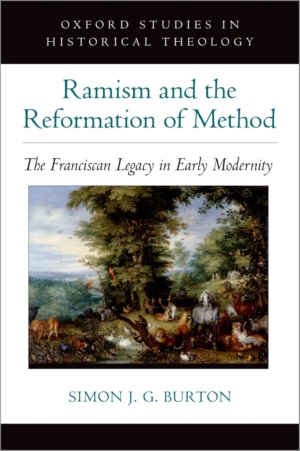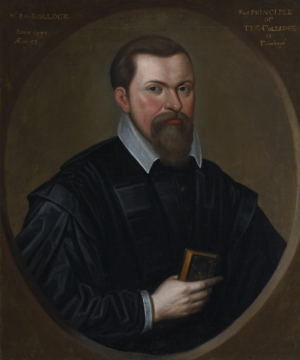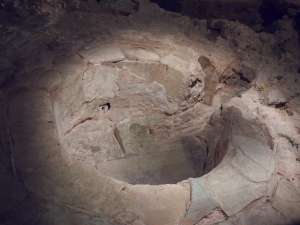Philosophy and the way that we frame issues has always played an important role in expressing the truth. We have an “apparatus” to our thought. We use certain conventions to be able to articulate what we mean even in theology. Whether we . . . Continue reading →
Historical Theology
New Translation In Print: Rollock On Romans
Robert Rollock (1555–98) did not live very long but he was a hard-working Scotsman who left his mark on Reformed theology and especially in biblical commentary and the development of Reformed covenant theology. In his introduction to Rollock’s commentary on Ephesians, Casey . . . Continue reading →
Can Baptists Be Catholic? (Part 3)
My Baptist friends give two replies to the claim that they are not truly catholic. First, they appeal to their intent to be catholic. For example, in the introduction to the Second London Confession (1689) they say: “This we did the more abundantly to manifest our consent with both in all the fundamental articles of the Christian religion, as also with many others whose orthodox Confessions have been published to the world on the behalf of the Protestant in diverse nations and cities.” Continue reading →
Can Baptists Be Catholic? (Part 2)
When the ancient church began to use the adjective catholic (universal) to describe her theology, piety, and practice, and to distinguish herself from the Gnostic, Marcionite, and Montanist cults of the second century, the best evidence is that they did not read . . . Continue reading →
Can Baptists Be Catholic? (Part 1)
Whether Baptists can be catholic is a serious question that requires a serious answer. Before we proceed, however, we must define our terms. What is catholicity? Our English word catholic is really a Greek word, katholikos (καθολικός), borrowed by English. What does . . . Continue reading →
Ursinus’ Arguments That “This Is My Body” Is A Promise Of Grace Translated With An Introduction
The Heidelberg Reformation Association presents the first ever translation of a brief work on the Lord’s Supper by Zacharias Ursinus and translated by Dr Lee Irons. Continue reading →
Looking For Peter’s Successor
In the last month, we have witnessed the death of one pope and the election of another, and as typically happened, we saw reporters speaking in solemn tones about the unbroken line of succession from Peter to Leo XIV. Also, recent months . . . Continue reading →
Sola Scriptura Fell Out Of The Sky? A Response To Trent Horn
The popular Roman Catholic apologist Trent Horn recently published a video criticizing the Protestant principle of sola scriptura on historical grounds, and arguing that sola scriptura was a novel idea invented by the Protestant Reformers with no basis in the writings of . . . Continue reading →
New Insight Into Olevianus And Ursinus On The Imputation Of Active Obedience
The publication of this new research, completed only in the last month, may surprise some readers, disappoint others, and delight still others but it is important research that changes what we know about the origins and development of the controversy over the . . . Continue reading →
Why Does The Council Of Chalcedon Matter?
Dr. R. Scott Clark explains why the Council of Chalcedon matters for our theology today. Continue reading →
Confessional Protestantism Is Not Populist
I recently watched a panel discussion hosted by the Intercollegiate Studies Institute (ISI) which discussed the book, The Democratization of American Christianity, along with its author, historian Nathan O. Hatch.1 The members of the panel included Rusty Reno from First Things Magazine, . . . Continue reading →
The Black Rubric And The Creator-Creature Distinction
The “Black Rubric” was so-called because it was set in black print in the 1661–1662 edition of the Book of Common Prayer. It was first inserted into the Second Edwardian Prayer Book in 1552. It was intended to explain that when communicants . . . Continue reading →
When Old Testament Scholars Do Historical Theology
It comes out about as accurate as Historical Theologians doing serious Old Testament work. I say this because I recently asked whence folk (Federal Visionists among them) get the idea that Martin Bucer’s soteriology marked a substantial break from Martin Luther’s. I . . . Continue reading →
Tertullian On The Trinity
In the course of time, then, the Father forsooth was born, and the Father suffered,—God Himself, the Lord Almighty, whom in their preaching they declare to be Jesus Christ. We, however, as we indeed always have done (and more especially since we . . . Continue reading →
Tertullian And The Athanasian Creed
Bear always in mind that this is the rule of faith which I profess; by it I testify that the Father, and the Son, and the Spirit are inseparable from each other, and so will you know in what sense this is . . . Continue reading →
Tertullian On The Natural Knowledge Of God
For indeed, as the Creator of all things, He was from the beginning discovered equally with them, they having been themselves manifested that He might become known as God. For although Moses, some long while afterwards, seems to have been the first . . . Continue reading →
Augustine On Christ’s Present Reign
Today is St Augustine’s birthday (354 AD). In honor of his birthday, today’s Heidelquote is by St Augustine. 3. Therefore let the Church of Christ, the city of the great King, full of grace, prolific offspring, let her say what the prophecy . . . Continue reading →
Tertullian Anticipated Anselm On The Ontological Argument
The principal, and indeed the whole, contention lies in the point of number: whether two Gods may be admitted, by poetic license (if they must be), or pictorial fancy, or by the third process, as we must now add, of heretical depravity. . . . Continue reading →
What Tertullian Really Said About Jerusalem And Athens
These are “the doctrines” of men and “of demons” produced for itching ears of the spirit of this world’s wisdom: this the Lord called “foolishness,” and “chose the foolish things of the world” to confound even philosophy itself. For (philosophy) it is . . . Continue reading →
Has The Forensic Eclipsed Christ?
A friend pointed me to an interesting video (the link is now dead) by a WSC alumnus, Lane Tipton. The video is meant to be a discussion of Calvin and his doctrine of justification. I was quite pleased to hear Tipton say, . . . Continue reading →











